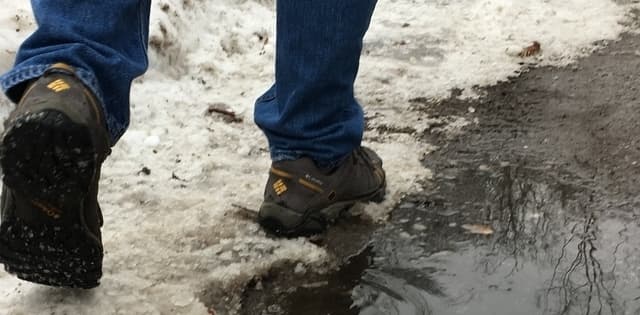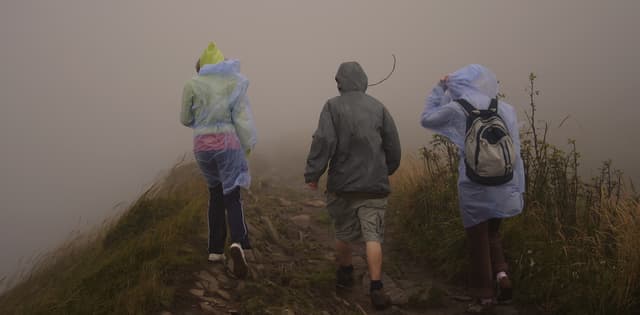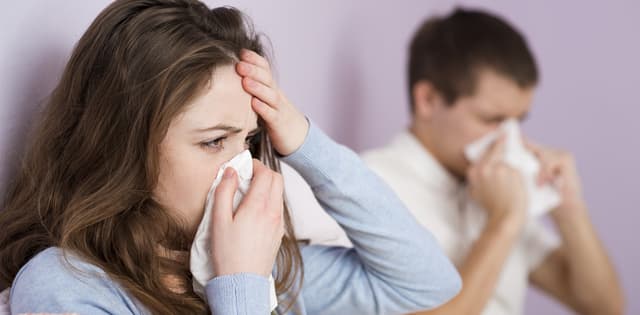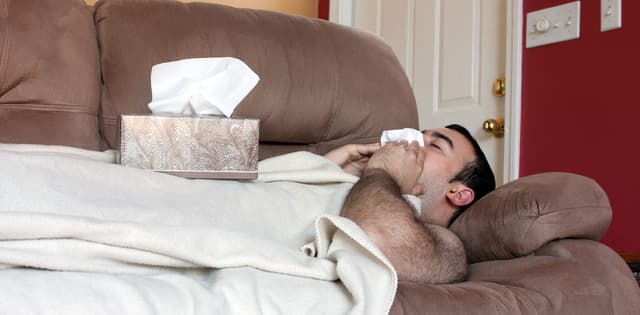Most of us have at some point heard, “put on a coat or you’ll catch cold” or “don’t play outside with wet, cold feet. You are going to get sick!” Yet, the question remains: is this actually true or just an old wives’ tale?
According to a study by Dr. Eccles, from Cardiff University’s Common Cold Centre, some of his test subjects appeared to develop cold symptoms following an experiment in which the feet were cooled down. On the contrary, a study in 1968 supported the opposite conclusion. Subjects were exposed to a virus and then chilled with results showing no difference in outcome from the chilled and non-chilled group.
So, what do you believe when research suggests that both mom’s advice as well as her child’s retort of “I’m fine” are BOTH correct? Do wet feet indeed cause colds? We will lay out the arguments of both sides and you can make up your mind until further studies definitively conclude one way or the other.
Argument #1: Wet feet cause colds
Let’s start by exploring the opinion of wet feet causing colds. After all, this is the phrase you have heard over and over while rebelling against the constricting feel of being bundled up and sweating while walking to the bus stop.
In 2005, Dr. Ron Eccles from Cardiff University’s Common Cold Centre ran a small study with 180 people. Dr. Eccles has dedicated himself to becoming an expert in colds with particular interest to the nose in relation to illness. He has been involved in over 120 clinical trials and is a world-wide lecturer. With this level of experience, his study continues to hold weight.
To set up his experiment, Dr. Eccles’ 180 participants were divided by either receiving chilled feet or not. They were then asked to record if they felt they had cold symptoms. The conclusion was that 10% of people who are chilled will have cold symptoms due to being chilled.

What happens to the body?
Based on Dr. Eccles’ theory, when feet are chilled, blood vessels in the nose constrict (get smaller). When this happens, less blood now can travel to this area. Why does it matter if the blood vessels constrict?
The blood vessels carry oxygen, red, and white blood cells to different areas of the body. Because white blood cells are our fighters (the blood cells of the immune system), if the blood vessels constrict, that means less white blood cells can get to the nose. In other words, when the viruses enter the nose, as viruses do, the body will have less white blood cells with which to fight.
To create even more power to the argument of wet or cold feet causing colds, viruses die off in higher temperatures. Some studies have even shown that when viruses are heated to the same temperature as the human nose, they replicated faster. Unlike warmer temperatures, where the virus is pulled to the ground, in the cold weather, the virus is more likely to be in the air and then, breathed in.
Keep in mind time does matter. For prolonged periods of cold, so more than an hour, your immune system does start to weaken. If you are thinking of sledding or spending the day walking through freezing creeks, anything over an hour and you risk your immune system taking a blow.

But what do wet feet have to do with it?
The simple answer to this is that when you are wet, your body has a harder time staying warm. Clearly, if you are wet while inside something like a wetsuit or waders, you have a tendency to keep warmth in due to the neoprene but generally speaking, you are not walking around town in a wetsuit.
Be sure to check out this in-depth guide on moisture wicking socks here
When our feet are wet and our socks now contain wet moisture, the heat is pulled from our body. Why does this matter?
Our feet (and other extremities) have a key role in maintaining our body’s temperature. When individuals are cold, the body needs to pull as much of the heat from the extremities as possible to allow the core, or the torso, to remain warm. When you imagine where your body’s major organs are located (heart, lungs, etc), it is in the torso. The fingers and toes, while obviously nice to have, are secondary to the vital organs.
So therefore, when our feet are wet and now the cold moisture is pulling the body heat from the extremities, the blood veins are also constricting to ensure that less warm blood is wasted in going to the extremities. As you recall from above, the restriction of the blood vessels causes less white blood cells to be present.

Simply put. Wet feet = allow heat to escape = allow blood vessels in our extremities to constrict = less fighter cells (white blood cells) to fight off the enemy (virus).
So, Mom’s right. Right?
Well, not so fast…
Argument #2: Wet feet DO NOT cause colds
So now that the argument for wet feet causing colds has been laid, let’s examine the contrary concept: wet feet do not cause colds.
The most common rebuttal is simply that colds are caused by viruses and bacteria and not being cold or wet. According to the Pedorthic Association of Canada, wet feet may be uncomfortable in the cold, but you stand more risk to worry about the damage done to the skin rather than your immune system. Wet feet can cause blisters, cracks, tears and even more severe conditions if persistent.
Where’s the proof?
In 1958, a study was conducted which laid the argument against cold causing illness. The results were posted in the American Journal of Epidemiology.
Although it seems a bit bizarre, individuals volunteered for this study knowing they were to be infected with a virus. The individuals were healthy, male or female, and aged between 18 and 35. The virus was administered and the room’s temperatures and humidity were maintained. This study showed no significant reasoning to think cold nor dampness caused illness.

In 1968, a similar study was performed by which rhinovirus Type 15 infection was given and the participant were chilled at different intervals throughout administering the virus, during the illness and in recovery. After being chilled, there was no significant changes to imply that being cold made any difference.
At McMurdo Station, Antartica a study was held in 1976. To be brief, the study observed the men at the station in relation to cold development. What was interesting was simply that the men did not get sick unless a virus was brought in by an outsider. This is clearly the coldest of conditions and yet they did not automatically get sick. Were they wet? The study does not clearly say this but the cold alone did not cause this.
What about the weather?
In the cold, the weather is typically dry. This dryness causes mucus membranes that may otherwise keep infection at bay to dry out and allow the virus to actually have an easier time entering your body.
Further, if the weather were to suddenly raise and allow individuals to actually want to venture out on a nice day and then instantly drop again the few days people would actually want to be around other humans could help to spread the viruses. The sudden drop of temperature following would allow for the conditions to be right for the virus to incubate.
So then cold and wet, by this theory, does not actually cause the illness in itself. It is more that the cold sets the right environment up for your body to be in prime condition to play breeding ground for viruses. Side note: you can get a humidifier to help combat the dryness in your home.
So, what’s the answer? Do wet feet cause colds?
Since there’s evidence to support both arguments, ultimately it’s up to you to determine which train of thought you want to believe. While the answer, like most old wives’ tales, still seems up for debate, unless you personally like cold, wet feet, it seems better safe than sick.
Personally, I’m happier keeping my feet warm and dry. Even if there’s only a small chance that it’ll reduce my chances of getting sick, it’s way more comfortable as well! It just makes sense to dress appropriately for the weather whenever you can.
Some may take the opposite opinion, especially during teenage years where everything is a battle, and this may just be one you don’t see enough evidence to fight. But that’s another story!
Viruses commonly enter through the eyes, mouth and nose. It is believed that after a virus enters the nose, it will take 8-12 hours for its reproductive cycle to be completed and new virus cells to be distributed into the body. The actual movement of the original virus to the back of the nose and attachment onto the back of the throat take less than 15 minutes.
A missing part of Dr. Eccles study was the simple fact there was no predetermining assessment to know if someone already had a virus in their nasal passage upon starting the experiment. Knowing this, Dr. Eccles has stated he would like to redo the study with more control in maintaining the state of the individuals.

Whichever way you pick, remember there are a number of other old-fashioned remedies to fight or prevent potential colds: zinc, vitamin C, elderberry syrup, sleep, water, exercise, turmeric, and the list continues. And washing your hands regularly is also a great habit to maintain.
As always, check with your regular doctor before adding, changing or modifying your diet/lifestyle. However, rest assured, wet feet or not, there are studies to support you whichever way you lean.
